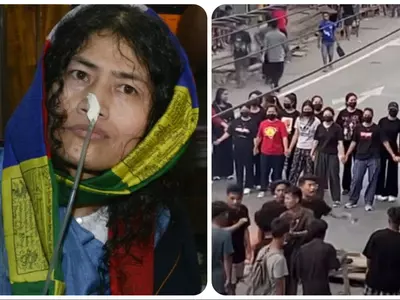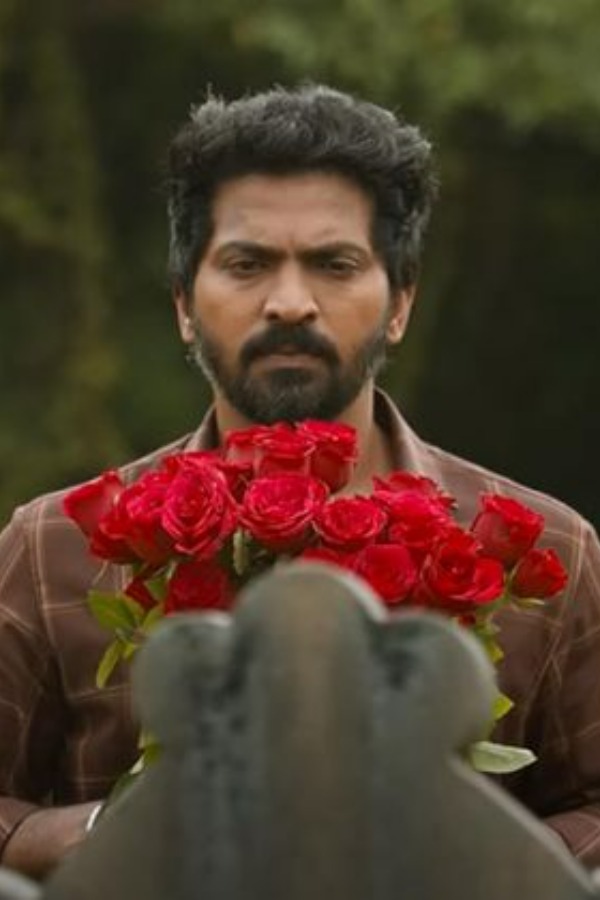The Iron Lady Of Manipur Is At Peace Away From Limelight But Current Ethnic Clash Brought Out Her Concerns

As Manipur is reeling in the wake of ethnic clashes, here is a look at the State's Iron Lady - Irom Sharmila - who had sacrificed 16 years of her life to remove the allegedly 'draconian' Act, AFSPA.
 Irom Sharmila/ BCCL
Irom Sharmila/ BCCL
Irom Chanu Sharmila is an Indian civil rights activist, political activist, and poet from the state of Manipur.
Why Irom is the 'Iron Lady'
Armed Forces (Special Powers) Act (AFSPA) is a Parliamentary act that grants special powers to the Indian Armed Forces and the state and paramilitary forces in areas classified as “disturbed areas” to act in contravention of law and arrest and search any premises without a warrant and with protection from prosecution and legal suits.
Irom Sharmila had begun a hunger strike on 5th November 2000 to abolish the AFSPA - and for 16 years, she remained steadfast - while being force-fed through a nasal tube and imprisoned in an Indian government hospital.
 Irom Sharmila breaks her 16-year-long fast/ BCCL
Irom Sharmila breaks her 16-year-long fast/ BCCL
As the world recognised her work, she was given many awards and was sought after by Nobel laureates and diplomats. But this idolisation by people actually made her feel isolated - she felt the responsibility to end the AFSPA was left to her alone, whereas it should have been a collective cause.
Disillusioned, she finally ended her fast on 9 August 2016.
Call of politics
After ending the fast, she announced that she would contest the next state elections in Manipur.
In October 2016, she launched a political party named Peoples' Resurgence and Justice Alliance to contest two Assembly constituencies of Khurai and Khangabok.
But the election, held in March 2017, was a disaster. Sharmila managed to win 90 votes. Two days after the result was announced, she left Manipur.
Sharmila has never returned to Manipur, unsure if her Manipuri brethren would welcome her back. Speaking to the Guardian, she said that she is finally at peace, “No more bondage, controlling by others all the time. That sense of freedom, my own view, reaching out to the farthest point.”
Current ethnic clash in Manipur
The current spate of violence in Manipur began in the first week of May after a rally by the indigenous communities against a move to grant tribal status to the leading ethnic group (Meiti) in the State. Meiteis account for around 53% of the population and live mostly in the Imphal Valley. In contrast, tribals, which include Nagas and Kukis, account for another 40% of the population and live mainly in the hills surrounding the valley.
It soon spiralled into a serious ethnic clash - leaving at least 70 dead, more than 200 injured and thousands displaced.
Irom stands with Manipur
In May this year, the civil rights activist from Manipur appealed to Manipuri women from all ethnic backgrounds to work together to restore peace to the strife-torn state.
PTI quoted Irom as saying, "Manipur is burning and I am deeply saddened seeing the sufferings of our people. I appeal to all, Meiteis and tribals, to unite and end violence. Women must act like Mother Nature’ and use their power to bring back peace".
On the 7th of May, 2023, women of the Kuki community had formed a human chain in Churachandpur town to protect people of the majority Meitei community from a mob.
 Human chain formed by women in Manipur/ Twitter
Human chain formed by women in Manipur/ Twitter
She went on to say that sending more troops to the state "will not help the situation" and urged "PM Modi, Home Minister or the Chief Justice of India to visit Manipur and understand the problems, to find out the root cause and then address them".
Bridging the gap
Irom Sharmila appealed to the centre to bridge the gap between the rest of India and the Northeastern States. Speaking to PTI on May 6th, 2023, she said, "If the centre wants India's true integrity and wants a united India, they must bridge the gap between people from the rest of India and the northeastern states. There is still discrimination and looking down on people from the northeastern states."
For more on news, sports and current affairs from around the world, please visit Indiatimes News.

























